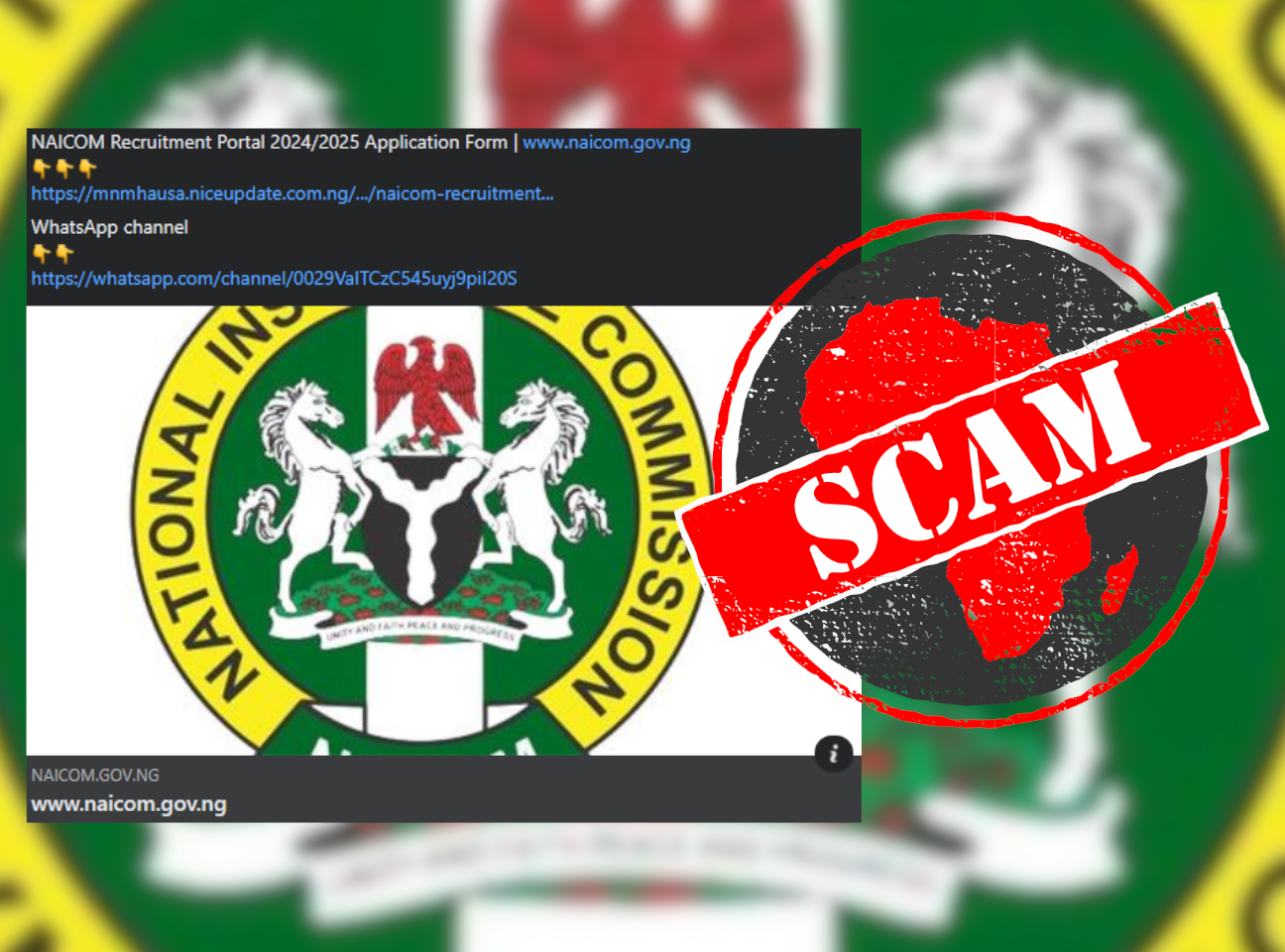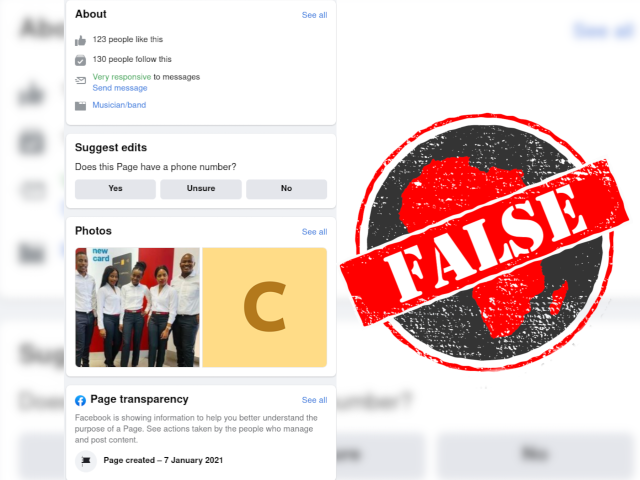IN SHORT: Jobs at the National Insurance Commission (Naicom) are in high demand. But the commission has warned the public that it is not hiring, as several similar social media posts and blogs claim. Beware, this process could lead to identity theft.
Nigeria’s National Insurance Commission (Naicom) has over 6,000 registered insurance agents and regulates all insurance businesses in the country.
So ads for Naicom jobs would attract many Nigerians’ attention. A post shared on a Facebook group in January 2024 claims that the insurance regulator is recruiting, and offers a Whatsapp channel for applications.
The post also includes a link to Naicom’s website, along with a link to what it claims is an application portal, but which leads to a blog making the same recruitment claims.
Similarly worded posts have also been published on other blogs, including here, here, here, here, here and here. All are headlined: “NAICOM Recruitment 2024/2025 Application Form Portal.”
Africa Check has investigated several fake job adverts which have been created for the purpose of identity theft and fraud. Is this yet another? We checked.

No recruitment exercise ongoing, insurance commission says
The WhatsApp link in the post invites you to join a channel that looks very unsafe.
Furthermore, Naicom says it is not recruiting.
In a statement by its corporate affairs lead, Rasaaq Salami, the agency said it had not endorsed any recruitment website other than its official platform.
“For accurate information regarding recruitment, grants or any other official communication from NAICOM, please refer to our official website or contact us through our recognised communication channels.”
For tips on how to spot online scams offering jobs, grants, loans, and gifts, read our guide here.
Republish our content for free
For publishers: what to do if your post is rated false
A fact-checker has rated your Facebook or Instagram post as “false”, “altered”, “partly false” or “missing context”. This could have serious consequences. What do you do?
Click on our guide for the steps you should follow.
Publishers guideAfrica Check teams up with Facebook
Africa Check is a partner in Meta's third-party fact-checking programme to help stop the spread of false information on social media.
The content we rate as “false” will be downgraded on Facebook and Instagram. This means fewer people will see it.
You can also help identify false information on Facebook. This guide explains how.





Add new comment